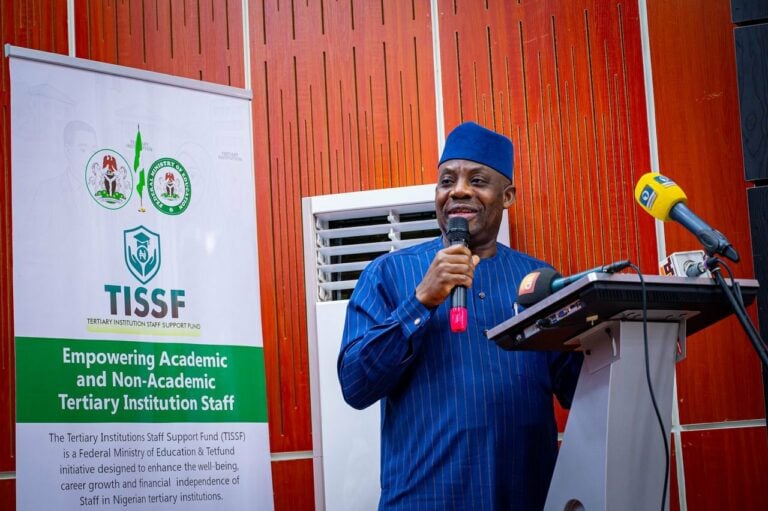The Federal Government has officially abolished the policy mandating the use of indigenous languages as the medium of instruction in Nigerian schools, reverting fully to English for teaching at all levels.
Minister of Education, Dr. Tunji Alausa, announced the decision on Wednesday at the 2025 Language in Education International Conference organised by the British Council in Abuja.
According to Alausa, the move was approved during the 69th National Council on Education meeting held in Akure, Ondo State, from November 3 to 7.
The scrapped policy — introduced in 2022 — required that pupils from Early Childhood Education to Primary Six be taught in their mother tongue or the dominant language of their community, while English would take over at higher levels.
However, Alausa said data from across the country showed declining academic performance in regions where the policy was most applied.
“We have seen mass failure in WAEC, NECO, and JAMB in areas that adopted the mother tongue excessively,” he said. “Using indigenous languages as the medium of instruction over the past 15 years has destroyed education outcomes in some regions. This is about evidence, not emotion.”
He added that English will now serve as the sole language of instruction from pre-primary to tertiary education, citing “evidence-based governance” as the reason behind the reversal.
“The national policy on language has been cancelled. English now stands as the medium of instruction across all levels of education,” he declared.
Alausa encouraged stakeholders who disagree with the decision to present verifiable data to support their position, emphasising that the government remains open to evidence-driven dialogue to improve learning outcomes.
Minister of State for Education, Prof. Suwaiba Ahmed, said the ministry is rolling out new teacher training programmes focused on literacy and numeracy for early-grade educators to tackle foundational learning challenges.
“We are training teachers in effective literacy and numeracy instruction for pupils in pre-primary to Primary Three,” she said.
British Council Country Director, Donna McGowan, reaffirmed the organisation’s support for Nigeria’s education reforms.
“We remain committed to working closely with the ministry to strengthen teacher training, school leadership, and language proficiency,” McGowan said.
The decision marks a major policy shift, signalling a renewed focus on English proficiency as the foundation of Nigeria’s education system.

Leave a Reply